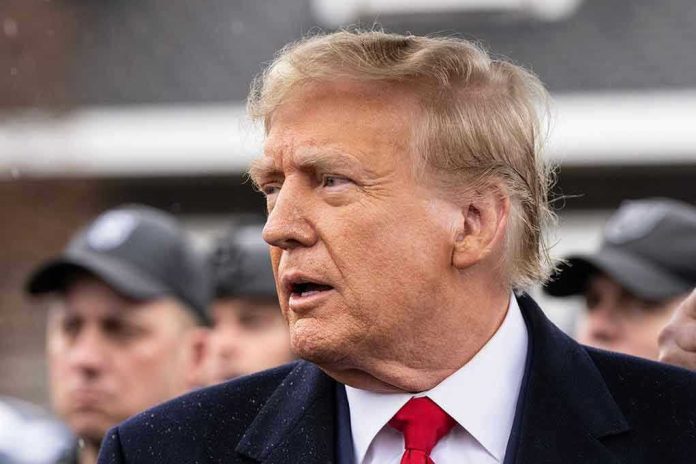
Donald Trump’s latest call for the release of a convicted election official has reignited the national debate over election integrity and presidential power.
Story Overview
- Trump demands release of Tina Peters, convicted for election equipment tampering.
- Colorado officials resist federal custody transfer request for Peters.
- Peters’ case highlights state vs. federal authority tensions.
- The controversy reflects ongoing battles over 2020 election integrity.
Trump’s Call for Peters’ Release
President Donald Trump recently demanded the release of Tina Peters, a former Colorado county clerk serving a nine-year sentence for her role in tampering with election equipment. Trump’s intervention comes as Colorado officials resist a federal request to transfer Peters into federal custody. Trump and his supporters view Peters as a whistleblower unjustly punished for exposing supposed voter fraud, while state officials argue her actions violated Colorado law and election integrity.
Trump calls for disgraced election official linked to his ‘Big Lie’ to be freed – as Colorado officials dig their heels in
https://t.co/nNRgA2c2vk— soccimo (@soccimo) November 24, 2025
Peters allowed unauthorized access to Mesa County election equipment, linked to Trump ally Mike Lindell, during a May 2021 software update. This breach led to sensitive voting information being posted online, triggering investigations. Peters was convicted in October 2024 on seven counts, including four felonies. Her conviction and sentencing are part of broader state efforts to counter election denialism and uphold legal standards.
State vs. Federal Power Dynamics
The case has sparked a complex legal and political battle over state and federal jurisdiction. Trump’s calls for Peters’ release underscore the limits of presidential power in state convictions. Presidential pardons do not apply to state-level crimes, and any transfer of Peters to federal custody requires approval from Colorado Governor Jared Polis. The state’s resistance highlights its commitment to maintaining control over its legal processes and election security.
Colorado Secretary of State Jenna Griswold and other officials have been vocal in opposing the federal transfer request, underscoring the importance of protecting state sovereignty and election integrity. The case exemplifies the ongoing tension between partisan narratives and legal accountability, as Trump’s influence persists among his supporters despite limited legal authority.
Implications for Election Integrity
Peters’ case holds significant symbolic value in the broader debate over election denialism. Her actions and subsequent conviction serve as a cautionary tale for other officials tempted to undermine election processes. Colorado’s strict response reinforces its reputation as a leader in election security reforms and transparency, amid national debates over election legitimacy.
Short-term, the case has intensified political polarization, with Trump’s base rallying around Peters and Colorado officials defending the integrity of their legal system. Long-term, it could set precedents for handling election-related crimes and federal intervention attempts. The case also raises questions about the influence of presidential rhetoric on local election officials and the boundaries of federal power in state justice systems.
National and Local Repercussions
The controversy surrounding Peters has broader implications for the U.S. public and election workers. It feeds into national debates about election legitimacy, potentially eroding social trust and increasing scrutiny of election technology and administration sectors. Colorado’s election officials have faced threats and intimidation, highlighting the need for protective measures and legal support for bipartisan election workers.
Economically, the increased security and legal proceedings associated with such politically charged cases add indirect costs. Politically, the case energizes both election denialist movements and defenders of election integrity, further entrenching divisions in American society. Ultimately, Peters’ case underscores the delicate balance between upholding state laws and navigating the complex political landscape surrounding election integrity.

